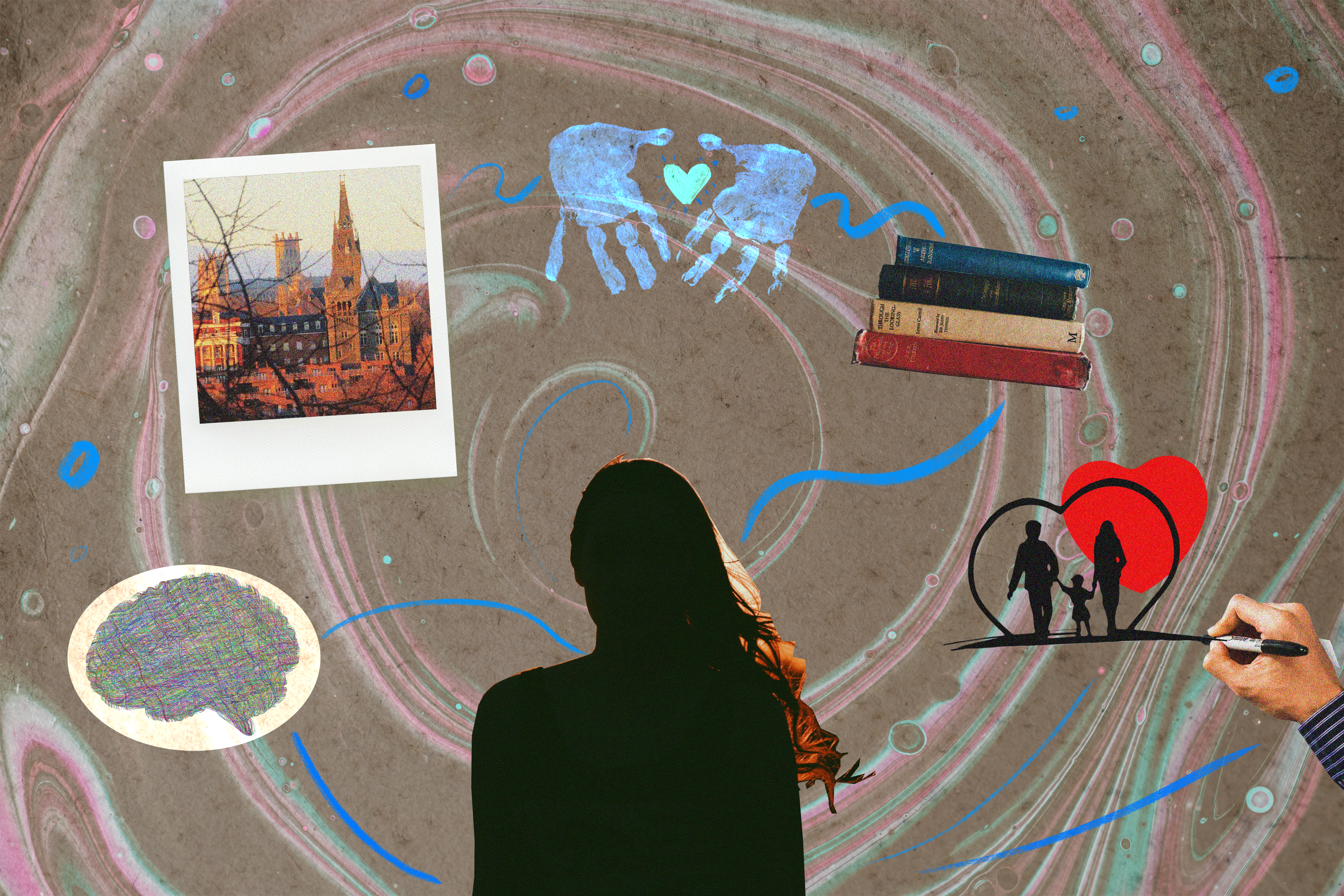I first realized something was different with my dad when I was six. We were sitting on the couch eating cereal when I suddenly noticed he could no longer get the milk from the bowl to his mouth without spilling it all over himself. It was the first time we all noticed his shaking and he was confused. My mom was sure it was just his blood sugar making him shaky. I was amused at how messy he was, teasing him that he should wear a bib like I used to when I was younger.
Years later, my dad was diagnosed with Parkinsonian dementia; and as his illness intensified, so did my role as his caregiver. I kept track of my dad’s schedule, ensuring that he remembered to eat, sleep, bathe and get to his neurologist appointments on time.
I spent so much time worrying about my dad that I forgot about my own well-being. When it came time for me to apply to college, I was confronted with an incredibly hard decision—should I stay home to take care of my dad, or should I move away to pursue higher education? Neither answer seemed right and both made me feel guilty.
If I did go to college, I’d feel guilty because it seemed like abandoning him, and I believed that I was the one thing keeping him both physically and mentally healthy. I was the one person left that kept him from feeling alone. I felt like the only person he had. In addition, I had a warped fear of missing out by leaving him behind. With a sick or disabled parent, choosing to attend college can be a trade-off between pursuing education and spending the final years of their life with them. Having only a set number of years left with a loved one makes your choices about spending time much more important.
At the same time, I’d feel guilty if I didn’t go to college. My dad spent all of his able years working full time so that one day I could afford to go to college, and have the enriching college experience that he had. If I didn’t follow up on that investment, I worried I would be dishonoring his work. Eventually, I decided to go to college, or rather my mom made it clear that she cared too much about me to allow me to postpone my life to take care of my dad, and made the decision for me.
It made sense that I felt guilty. When you believe that you are solely responsible for someone’s well-being, you also worry that your departure will be the sole reason for their deterioration. Guilt is a heavy feeling, but the load is lighter when you share that experience with other people. It’s important to remember that guilt is normal and that feeling guilty doesn’t mean one is actually guilty.
When I started at Georgetown, I didn’t realize that my guilt about leaving my disabled dad at home was far from uncommon. According to the National Library of Medicine, “Approximately 10% of children live in a household where a parent has a chronic illness.” In a lecture with 200 people, that means 20 students are likely to have a sick or disabled parent at home or in hospice. So there’s a good chance that if you don’t have a sick parent, someone you know— – maybe a classmate, friend, or roommate— – does. Of course, not everyone who has a sick parent is a caregiver, but most of us have had to take on extreme responsibilities to support our families.
Children of a sick or disabled parents aren’t the only ones who experience guilt about leaving for college. Many students have similar decisions to make: considering if one’s family will be able to afford child care for the youngest siblings, wondering about the impact that the added financial stress tuition inflicts on family finances, and being successful as a first generation college student. That makes attending college a difficult choice, and one that can come with multiple sources of guilt.
However, we don’t need to feel guilty about allowing ourselves the opportunities to experience new things. I wish I understood that lesson earlier in my college experience because I would have felt less alone in this learning process. Caring for ourselves is actually essential to our ability to care for others. Taking care of someone else while you yourself are suffering is exhausting and counterproductive. As caretakers of others, we must also understand that caretaking is not just caring for one person, but also caring about the things that they care about. Once you realize that includes taking care of oneself, the process of caretaking becomes mutually beneficial and rejuvenating rather than one sided and draining. Since my dad cares about me, properly taking care of him means taking care of myself too. The action of caring for another isn’t mutually exclusive with caring for yourself.
Sometimes what a recovering caregiver needs most is to be taken care of themselves.
While struggling with guilt and a sick parent is a very personal battle, support from others helps. Without even knowing, my friends helped me the most when it came to overcoming my guilt. They did this by continually inviting me to social events even when I declined over and over again. Just like anything, unlearning guilt about leaving a sick parent at home takes practice. So little by little, their unwavering invitation to hang out gave me the opportunities I needed to get out of my own head—at my own pace. Visibility and talking about having a sick parent helps. Just hearing one other person speak about their caregiving experience can be the difference between feeling totally alone and feeling connected to an understanding and broad community. The best way to support someone dealing with a sick parent is to simply provide them with a space. Don’t give advice unless it is asked, just simply listen, confide and comfort.
I will always love my dad and I will always feel some guilt about leaving him at home. Feeling guilty about leaving home is okay, but allowing that guilt to prohibit you from experiencing all that college has to offer is not. I now understand that one of the best ways I can care for my dad is by living the life he always wanted for me—having fun, making mistakes, and learning all of what it means to be an adult… not just what it means to have the responsibilities of one.






Thank you for sharing. My mom is paralyzed and fighting cancer. I feel so guilty about ever leaving the house or enjoying things in life knowing she’s stuck at home feeling depressed. Reading other caregivers’ stories really helps.